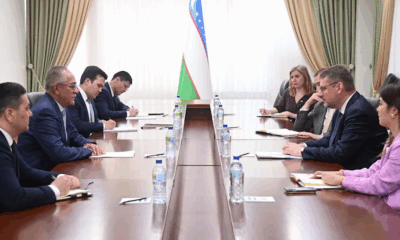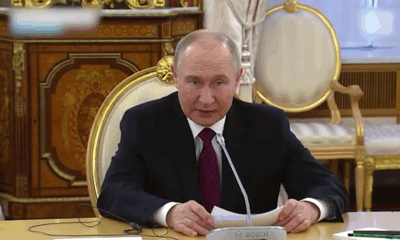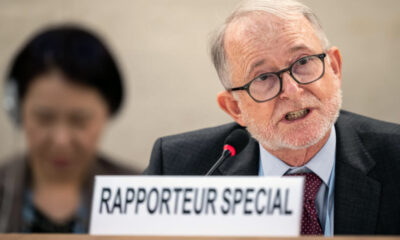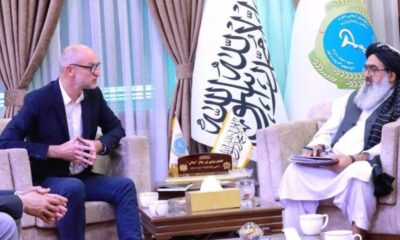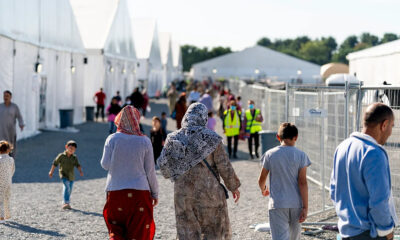Latest News
Khalilzad reflects on fall of Kabul govt and military
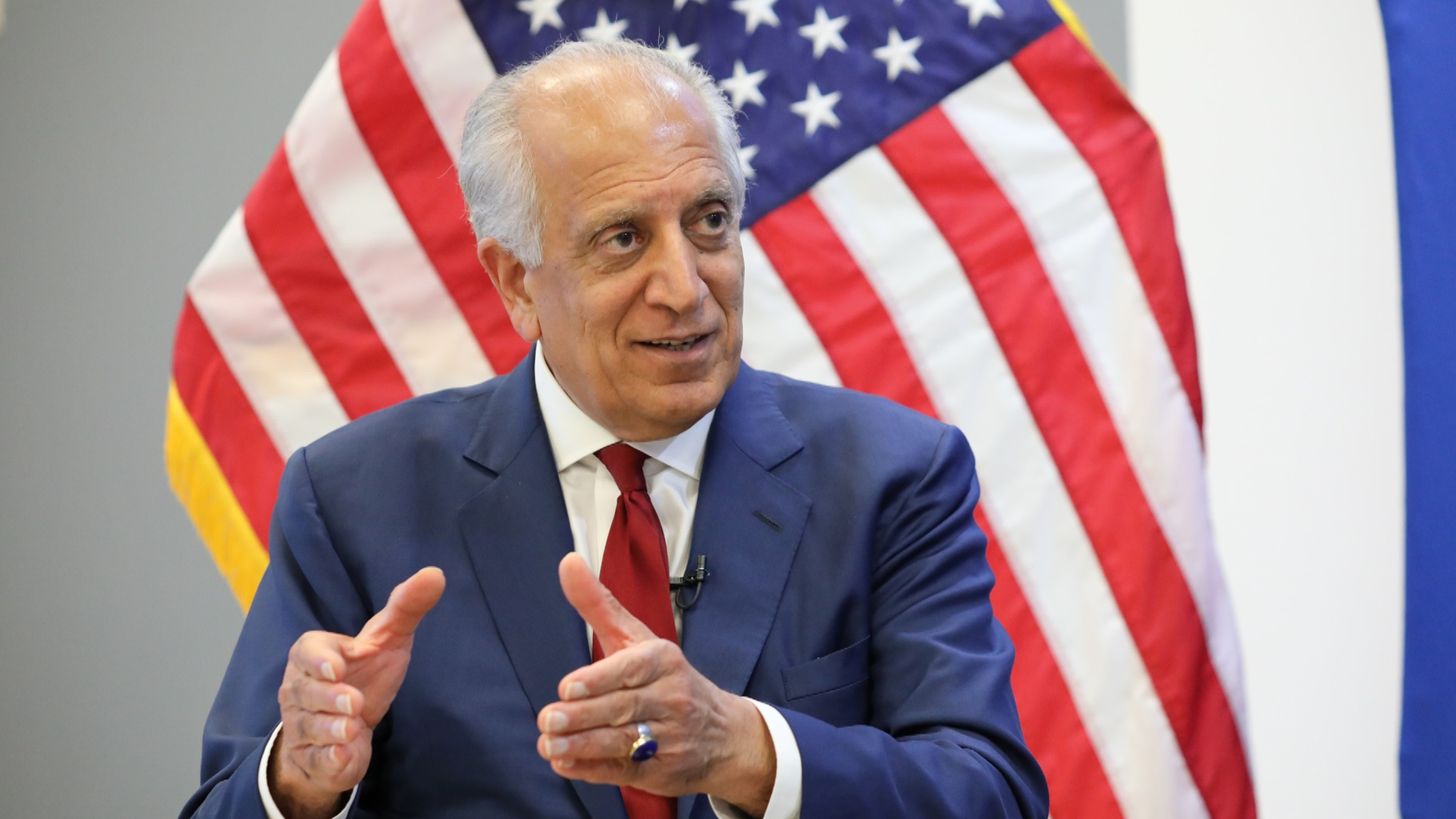
US special envoy for Afghanistan Zalmay Khalilzad said this week that many questions remain unanswered on why former president Ashraf Ghani fled the country unexpectedly and why the Afghan military forces dissolved within just a few hours.
He also stated that in his opinion, the leadership of the former government made a “grand miscalculation” – that the US would never withdraw its troops.
In an interview with Foreign Policy on Tuesday, Khalilzad said: “Why did President Ghani do what he did? Why did the forces behave the way they did? The question is, you know, we invested so much in this force. The numbers were impressive on paper, the capabilities were there, internal weapons, air power – especially special forces of the military, which we thought was quite significant and capable and dedicated, some of them, that perform extremely courageously as individuals, as units.
“There were forces at work for our various other agencies that were all there. What happened?,” he asks.
He said while the US did not have information yet on the issue it does seem the security forces were left fighting for a government they didn’t want to defend.
“We haven’t done enough work to say what definitively happened in terms of that. But that’s what it looks like,” he said.
“And there have been some quick assessments of why, even as districts were falling, people saying that many commanders were changed. There are others who say, you know, people didn’t think this thing was worth fighting for.
“Could it be the standing of the government changed with the soldiers because of corruption and perceptions of corruption? I don’t know; we don’t know. This will take a lot more time,” he said.
Khalilzad also said many Afghans complain that the US pushed Ghani too hard, while others have said Ghani should have been pushed harder on the negotiations.
He said he thinks Ghani may have been “ill advised” but that no one, except some individuals, expected the military and government to collapse so quickly.
“People thought it might take years if it happens. Then as these districts started to fall, some people shrank the time that it might take.
“But Ghani, whenever I saw him and when the secretary (of state Antony Blinken) spoke to him the night before all of this happened, he was of the view that even after our departure (troops withdrawal), sometimes he would say it was a blessing.”
Khalilzad said he had many conversations with Ghani in the lead up to the collapse of the former government, but the former president was “of the view that the Talibs (IEA members) would not be able to win militarily.
“He believed that very, very passionately and strongly until, I think, they (the IEA) were surrounding Kabul.”
He said in reference to the Doha talks between the US and the IEA, which led to the Doha deal in February last year, that he “respects those who say we shouldn’t have negotiated with the Talibs (IEA) without the government being there.”
He said commentators “don’t deal with the underlying forces or balance that caused us to do that which was that we were losing ground”.
“Since after (former U.S. President Barack Obama’s) surge, each year we were losing ground to the Talibs (IEA), meaning Talibs (IEA) were taking more territory. So unless we agreed to another surge, time was not on our side.”
“I think that the grand miscalculation of the Afghan leadership was this: that we were not going to leave.”
He said putting a condition in place with the IEA that troops would be withdrawn only once an agreement was in place between the IEA and the former government, “could have been an option”.
“But there was a lot of pessimism here, whether the Afghans could ever come to an agreement with each other. And therefore, if you made it a tight condition; You’d never leave; in a sense, you’re saying you’re going to stay”
Khalilzad stated that in his opinion Ghani was reluctant to forge an agreement with the IEA as a new government would mean he might lose power.
“This new government idea meant that perhaps he wouldn’t have led the government. It took us a long time to get him to even appoint an inclusive delegation to go to Doha.
Khalilzad also said however that the IEA played a key role in ending ISIS-K’s (Daesh) foothold in Afghanistan.
“I think on ISIS, they played a vital role in ending the territory of ISIS in Afghanistan. We will watch that closely. We are, this is obviously of vital importance, we hold them to their commitments on terrorism, including al Qaeda.
Khalilzad said that the US has made some achievements in Afghanistan over the past 20 years.
“People live longer, are more educated, wealthier. The physical face of Afghanistan, of Kabul, changed fundamentally. On the building of a vision – that of a democratic, self-sufficient, secure Afghanistan – I think we fell short together. And you have to learn from what happened.
“Could we have done things differently? Was there a problem of ends and means that our ambitions were too large compared to the strategy and resources?
“How we built the [armed] forces? Could it have been done differently to make it more resilient and more self-reliant and motivated to fight? Should we have pushed harder for a political settlement earlier? Yes, I reflect on those, and I will reflect on them for some time to come,” he said.
Latest News
Uzbek and EU envoys meet, discuss Afghanistan
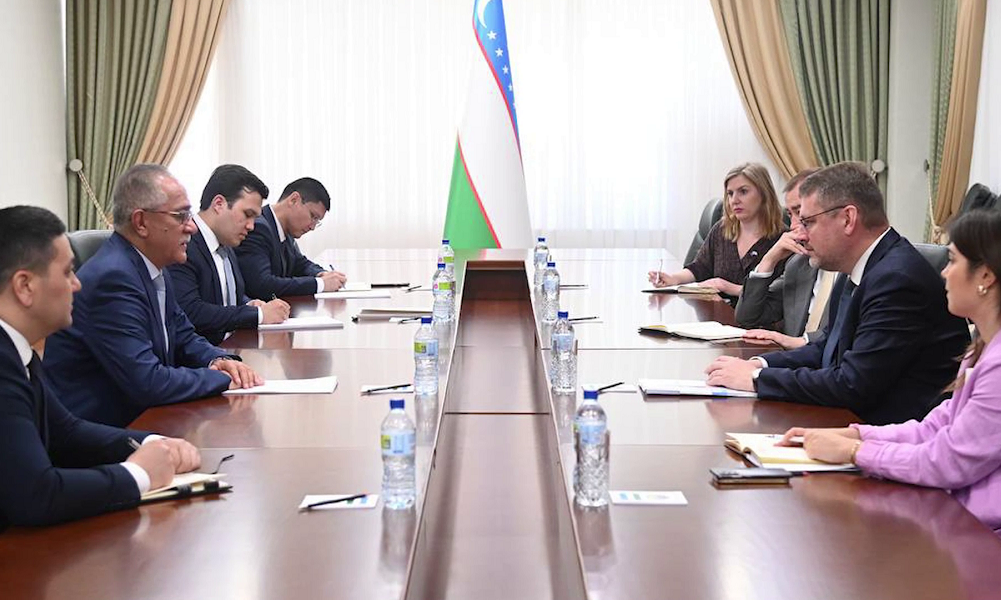
Uzbekistan’s Ministry of Foreign Affairs says the special representatives of Tashkent and the European Union have held discussions on key issues related to regional security and the current situation in Afghanistan.
According to a statement issued by the Uzbek foreign ministry, Ismatulla Irgashev and Eduards Stiprais also discussed prospects for deepening cooperation between Uzbekistan and the EU.
Stiprais, the EU Special Representative for Central Asia, expressed his interest during the meeting in holding constructive and systematic dialogues on issues concerning the situation in Afghanistan, the statement read.
He agreed to support regular consultations alongside Uzbekistan’s special representative.
Previously, special representatives from Uzbekistan and the EU had also discussed the situation in Afghanistan, the international community’s efforts to prevent a humanitarian crisis there, and the potential use of the Termez International Transport and Logistics Hub for delivering humanitarian aid.
Latest News
Putin says Moscow will continue effective cooperation with Islamic countries

Russian President Vladimir Putin says despite the difficult international situation, Moscow will continue its effective cooperation with Islamic countries.
Putin made this statement in his opening message to the 16th International Economic Forum “Russia–Islamic World,” also known as the Kazan Forum.
He added that Russia will expand its relations with these countries in various sectors.
“For centuries, our multi-ethnic country has embraced broad cooperation with the Islamic world, and today, despite the challenges in international cooperation, we continue to effectively and consistently expand our economic, scientific, educational, humanitarian, and interregional ties,” he stated.
The Kazan Forum, a major global platform for dialogue between Russia and the Islamic world, is being held in Kazan, Russia, from May 13 to May 18.
Officials from the Islamic Emirate have also been invited to attend the forum, and a delegation from Afghanistan is expected to participate.
Meanwhile, several analysts view this event as a valuable opportunity for Afghanistan to enhance engagement and cooperation with the international community, particularly with countries of the Commonwealth of Independent States (CIS).
Although Russia has not officially recognized the Islamic Emirate, in recent months it has reopened diplomatic channels and cooperation with Afghanistan, including suspending the designation of the IEA as a banned organization.
Latest News
Richard Bennett ‘shocked’ by explosive testimony of ex-British soldiers in killings of Afghans
The IEA said that foreign forces committed many war crimes in Afghanistan while stationed in the country over 20 years.
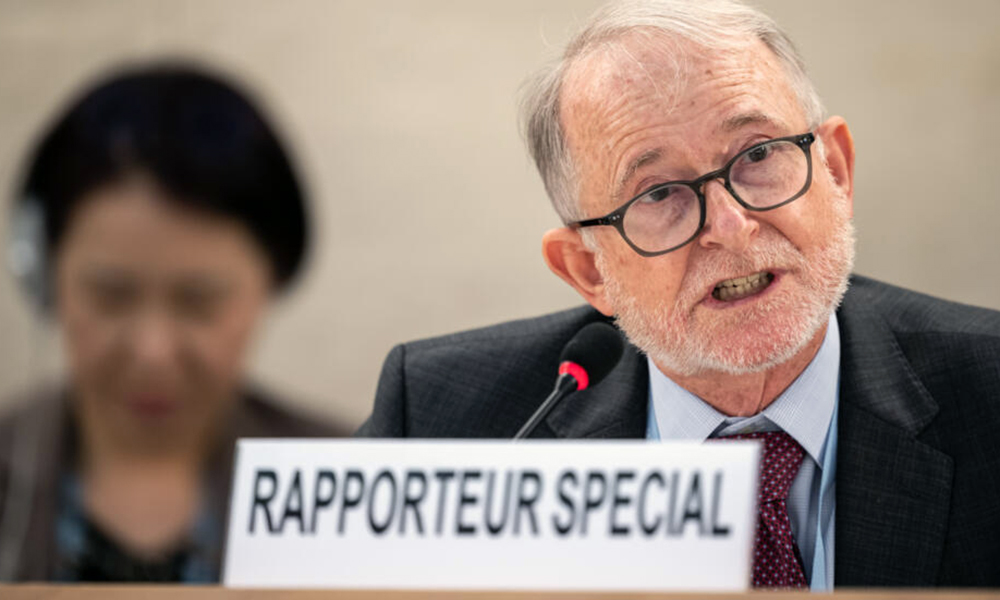
Richard Bennett, the UN Special Rapporteur on Human Rights in Afghanistan, has called for justice to be served over the unlawful killings by UK special forces in Afghanistan.
In a post on X on Monday, Bennett said the revelations in a recent investigation by BBC’s Panorama were “shocking”.
The Islamic Emirate also responded to the news and stated that foreign forces committed many war crimes in Afghanistan while stationed in the country over 20 years.
The IEA says these new confessions prove the extent of what transpired.
The BBC report featured testimony by several ex-soldiers on the unlawful killings while British troops were in Afghanistan.
These ex-soldiers told how British troops killed unarmed civilians in their sleep and executed blindfolded detainees.
One former soldier who served in Afghanistan recalled an incident in which troops “handcuffed a young boy and shot him. He was a child, not even close to fighting age.” He added that the killing of detainees by British special forces “became routine.”
Allegations of war crimes involving British forces in Afghanistan have circulated for years, and formal investigations are ongoing.
However, these inquiries and investigations by the BBC have still not led to any charges being brought against the alleged culprits or any meaningful justice for the victims.
-

 Regional5 days ago
Regional5 days agoIndia says military stations attacked by Pakistan drones and missiles
-
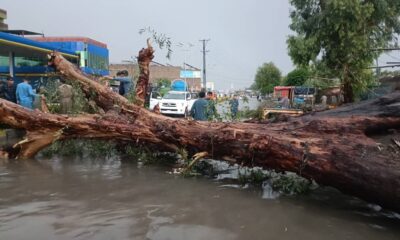
 Latest News5 days ago
Latest News5 days agoOne dead, dozens injured as powerful storm strikes Jalalabad, Afghanistan
-
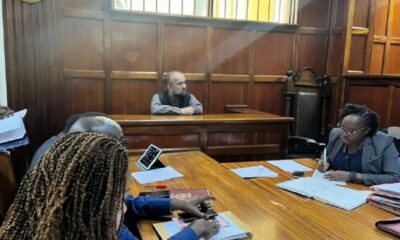
 Latest News5 days ago
Latest News5 days agoEx-Afghan deputy speaker Qadeer back in Kenyan court for criminal case
-
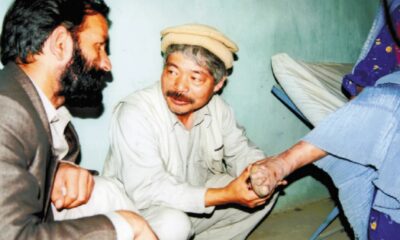
 Health5 days ago
Health5 days agoJapanese charity Peshawar-Kai to resume leprosy treatment in Afghanistan
-

 Sport5 days ago
Sport5 days agoIndia suspends Indian Premier League T20 cricket tournament
-

 Latest News4 days ago
Latest News4 days agoPakistan says India launched attack on Afghanistan, India denies
-

 Latest News4 days ago
Latest News4 days agoMCC Chief: Afghan cadres sent to China for AI training
-

 World4 days ago
World4 days agoUS offers to help India and Pakistan start talks, G7 also urges dialogue


